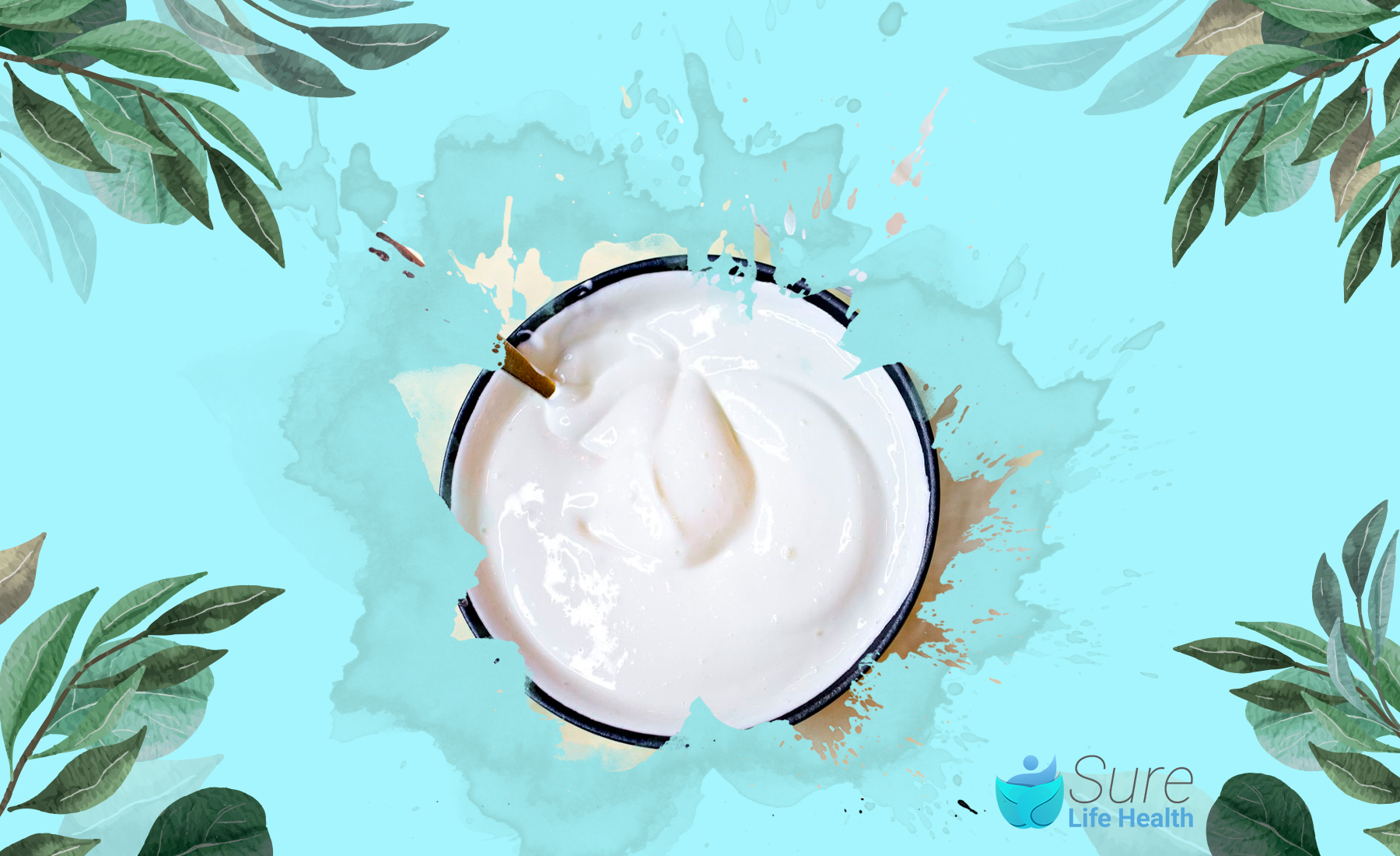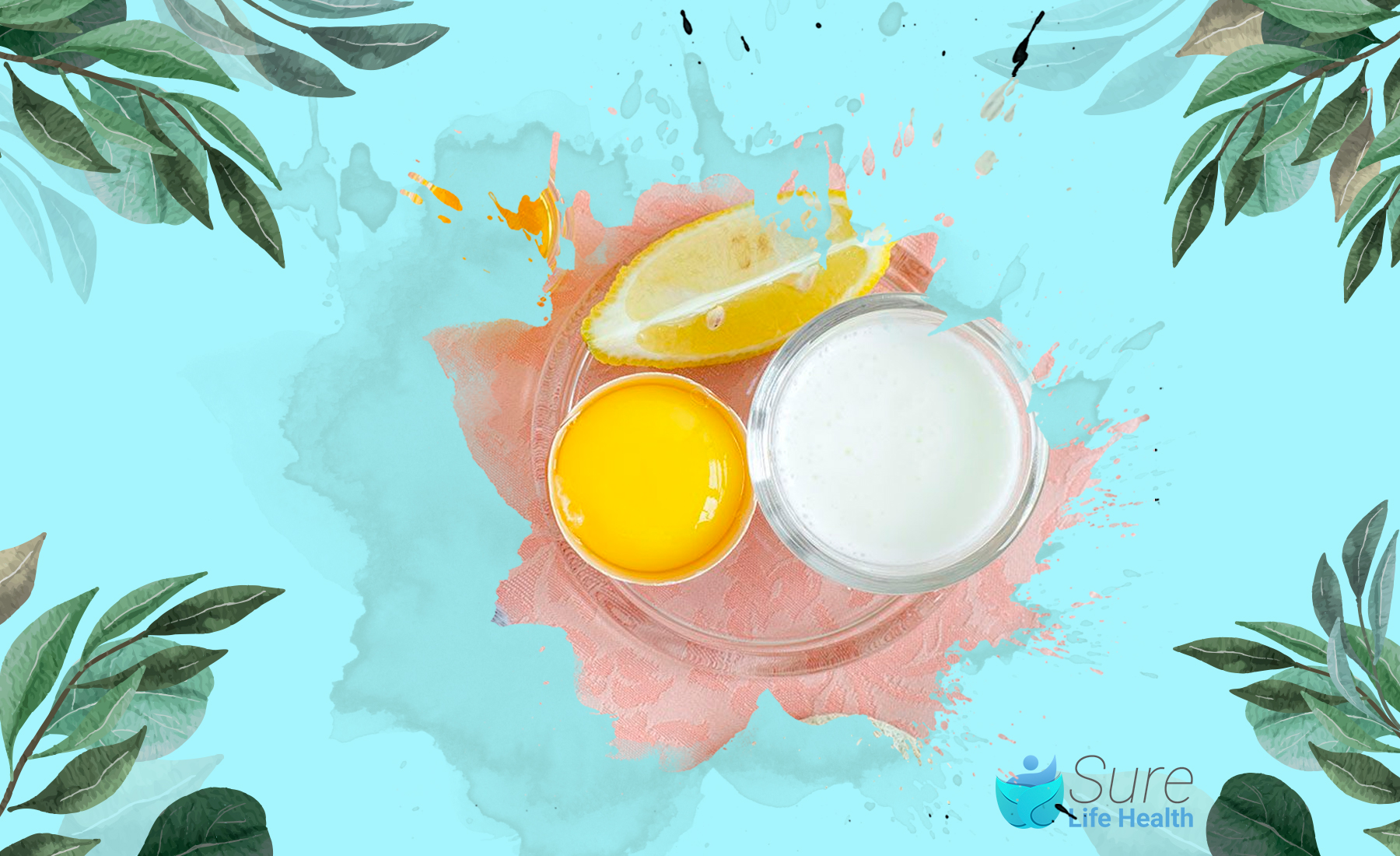Is yogurt good for your hair? This article investigates how this natural remedy can be a potent solution for promoting hair growth. We will explore the benefits of yogurt for achieving a healthy, strong, and lustrous mane.
This guide includes detailed instructions on how to incorporate yogurt into various hair treatments, such as masks and rinses.
We’ll also examine the scientific reasoning behind yogurt’s effectiveness in hair care and provide practical tips and tricks to enhance the impact of yogurt in your hair care regimen.
Is Yogurt Good for Your Hair?
Yogurt is indeed beneficial for promoting hair growth. It’s rich in protein, a crucial nutrient that supports hair strength and growth by repairing damage and reducing breakage. The protein content in yogurt contributes to healthier hair overall.
Moreover, yogurt contains lactic acid, which serves as a natural cleanser for the scalp and hair. It effectively removes buildup of dead skin cells and excess oils that can block hair follicles and inhibit hair growth. This cleansing action helps to maintain a clean and healthy scalp environment, which is essential for optimal hair growth.
By nourishing and strengthening both the hair and scalp, yogurt plays a significant role in fostering conditions conducive to healthy hair growth. Incorporating yogurt into your regular hair care routine can therefore promote stronger, healthier hair over time.

Benefits of Yogurt for Hair
Yogurt offers a multitude of benefits for hair, making it a versatile natural treatment for various hair concerns:
Maintains pH Balance
Yogurt helps regulate the pH levels of the scalp, which can be disrupted by environmental factors and hair products.
By balancing pH, yogurt promotes healthy, shiny hair and regulates sebum production, reducing dullness and brittleness.
Acts as a Natural Moisturizer
Dehydrated hair can become frizzy and prone to tangling. Yogurt’s moisturizing properties hydrate each strand, ensuring hair remains moisturized, frizz-free, and manageable.

Reduces Dandruff
Rich in antioxidants and possessing antifungal properties, yogurt deeply cleanses the scalp and controls excess oil that can contribute to dandruff.
Regular application can help maintain a healthy scalp environment, minimizing dandruff and preventing scalp infections.
Aids in Preventing Hair Loss
Yogurt unclogs hair follicles on the scalp, which can become blocked due to dirt, oil, or product buildup.
By strengthening hair roots and providing essential nourishment, yogurt helps reduce hair fall and promotes healthier, stronger hair growth.
Enhances Hair Shine
The nutrients in yogurt contribute to healthier hair overall. Regular use can improve hair’s natural shine, making it appear healthier and more vibrant.

Soothes the Scalp
Yogurt’s soothing properties calm an irritated scalp, providing relief from itching and inflammation often associated with dandruff or dryness.
Incorporating yogurt into your hair care routine not only addresses specific hair issues but also promotes overall hair health. Whether used alone or in combination with other natural ingredients, yogurt offers a gentle yet effective solution for achieving nourished, shiny, and resilient hair.
The Scientific Basis of Using Yogurt for Hair Growth
Yogurt is an excellent source of protein, a key nutrient vital for hair strength and growth. Since hair itself is composed mainly of keratin—a type of protein—adding protein-rich foods like yogurt to your diet or directly to your hair care routine can significantly boost hair resilience and structure.
Furthermore, yogurt is packed with essential vitamins such as B5 and D, both of which are critical in fostering healthy hair development.
Another significant benefit of yogurt is its probiotic content. These beneficial bacteria help maintain a healthy balance on the scalp, combating issues like dandruff and improving overall scalp health. This, in turn, creates a more suitable environment for hair to thrive.
Can Yogurt Thicken Hair?
Yes, yogurt can contribute to thicker hair by promoting overall hair health and growth. It contains essential nutrients like protein, vitamins, and lactic acid, which work together to strengthen hair strands and improve hair thickness over time.
The protein in yogurt helps to fortify hair, reducing breakage and supporting new hair growth.
Additionally, the vitamins and lactic acid in yogurt nourish the scalp and create a healthier environment for hair follicles to thrive, promoting thicker and more voluminous hair.

Potential Side Effects of Yogurt Use
While yogurt is generally safe and beneficial for hair care, there are potential side effects to be aware of:
- Allergic Reactions: Individuals with dairy allergies may experience allergic reactions when using yogurt on their hair. Symptoms can include itching, swelling, redness, and hives. It’s crucial to perform a patch test before applying yogurt to your entire scalp to check for any allergic sensitivity.
- Product Buildup: Yogurt can be challenging to rinse completely from hair, especially if not rinsed thoroughly. This can lead to product buildup over time, making hair appear greasy and weighed down.
- Skin Irritation: The lactic acid in yogurt, while beneficial for scalp health, can cause irritation or a burning sensation, particularly for those with sensitive skin. It’s important to monitor how your scalp reacts and avoid leaving yogurt on your hair for extended periods.
- Unwanted Odor: Yogurt has a distinct odor that may linger on hair even after rinsing. Some people may find this odor unpleasant.
To minimize these potential side effects when using yogurt on your hair:
- Conduct a patch test before applying yogurt to your scalp to check for allergic reactions.
- Rinse your hair thoroughly with warm water after using a yogurt hair mask to prevent product buildup.
- Consider adding essential oils or other natural fragrances to your yogurt mixture to help mask any lingering odors.
- Use plain, unsweetened yogurt to avoid additional ingredients that may exacerbate sensitivity or buildup.
Methods of Applying Yogurt on Hair
Here are several effective methods for applying yogurt on hair to harness its beneficial properties:
Yogurt Hair Mask
- Start with dry hair.
- Apply plain, unsweetened yogurt to the roots and along the length of your hair.
- Leave the mask on for 20 to 30 minutes, optionally covering your hair with a shower cap.
- Rinse out thoroughly with warm water, followed by a mild shampoo if needed.
Yogurt and Egg Hair Mask
- Whisk one egg in a bowl.
- Add 2 tablespoons of plain yogurt and mix well.
- Section your hair and apply the mixture from roots to tips.
- Leave on for 20-30 minutes.
- Rinse with a mild shampoo and cool water.

Yogurt and Banana Hair Mask
- Mash ½ ripe banana until smooth.
- Mix in 1 tablespoon of plain yogurt.
- Apply the mixture thoroughly from roots to ends.
- Leave on for 25-30 minutes.
- Rinse with a mild shampoo.
Yogurt and Olive Oil Hair Mask
- Combine 1 tablespoon of olive oil with 1 cup of plain yogurt.
- Apply to damp hair, focusing on roots and working through to tips.
- Leave on for 20 minutes.
- Rinse with cool or lukewarm water, followed by a mild shampoo if desired.
Yogurt and Honey Hair Mask
- Mix ½ cup of plain yogurt with 1 teaspoon of honey and 1 teaspoon of apple cider vinegar.
- Apply the mixture evenly to your hair.
- Leave on for about 30 minutes.
- Rinse thoroughly with a mild shampoo.
Incorporating these yogurt-based treatments into your regular hair care routine can help nourish, moisturize, and strengthen your hair, promoting overall hair health and vitality.
Conclusion
In conclusion, incorporating yogurt into your hair care regimen offers numerous advantages, including nourishing and strengthening your hair, soothing your scalp, and promoting a healthy, shiny appearance.
So, if you’re pondering, “Is yogurt good for your hair?” the answer is a resounding yes. The next time you’re searching for a natural and effective way to enhance your hair’s health, opt for a tub of yogurt over a traditional shampoo bottle. You’ll likely see a significant improvement in your hair’s condition.
Don’t forget to explore more informative and helpful blogs from Sure Life Health, where we continue to uncover the best in natural health care.
Professor Gaye Cunnane, PhD, MB, FRCPI
As the Director of Health and Wellbeing at RCPI, Professor Gaye Cunnane is at the helm of initiatives aimed at enhancing the health and well-being of RCPI Trainers and Trainees. Her role extends beyond administration; she is also a respected clinical professor of rheumatology and a consultant rheumatologist at Trinity College Dublin (TCD) and St James’s Hospital. Prof. Cunnane’s medical journey began at TCD, where she graduated from medical school, and her path has been marked by both clinical and academic excellence.
After completing her basic clinical training in medicine, she embarked on PhD studies at University College Dublin and St Vincent’s University Hospital. Her research during this period was focused on prognostic markers in early inflammatory arthritis, a project that saw her collaborating with esteemed universities across Europe, including in Switzerland, The Netherlands, the UK, and Sweden.
Prof. Cunnane’s career took her to the University of California, San Francisco, where she spent three years delving into research on new treatments for lupus. Her academic prowess led her to the University of Leeds in 2001 as a senior lecturer, before returning to Ireland in 2003 to assume her current roles. She has also served as the National Specialty Director for Rheumatology training in Ireland, Programme Director for Basic Specialist Training with RCPI, and as a past President of the Irish Society for Rheumatology.
PUBLISHED ARTICLES
“Rheumatic disease differentiation using immunoglobulin G sugar printing by high-density electrophoresis”: Published in The Journal of Rheumatology, this study reflects her in-depth investigation into rheumatic diseases.
“Benefits of exercise in patients with rheumatoid arthritis: a randomized controlled trial”: This research work, highlighting the positive impact of exercise on rheumatoid arthritis, underscores Prof. Cunnane’s dedication to practical, patient-centered research.
Additionally, Prof. Cunnane has made notable contributions to the Annals of the Rheumatic Diseases, discussing early referral, diagnosis, and treatment of rheumatoid arthritis. She has also been involved in a study on the NCBI platform investigating exercise benefits in rheumatoid arthritis patients.
Professor Gaye Cunnane’s career is a testament to her commitment to improving patient outcomes in rheumatology through rigorous research, clinical excellence, and dedicated teaching. Her work continues to influence the field of rheumatology, both in Ireland and internationally.

